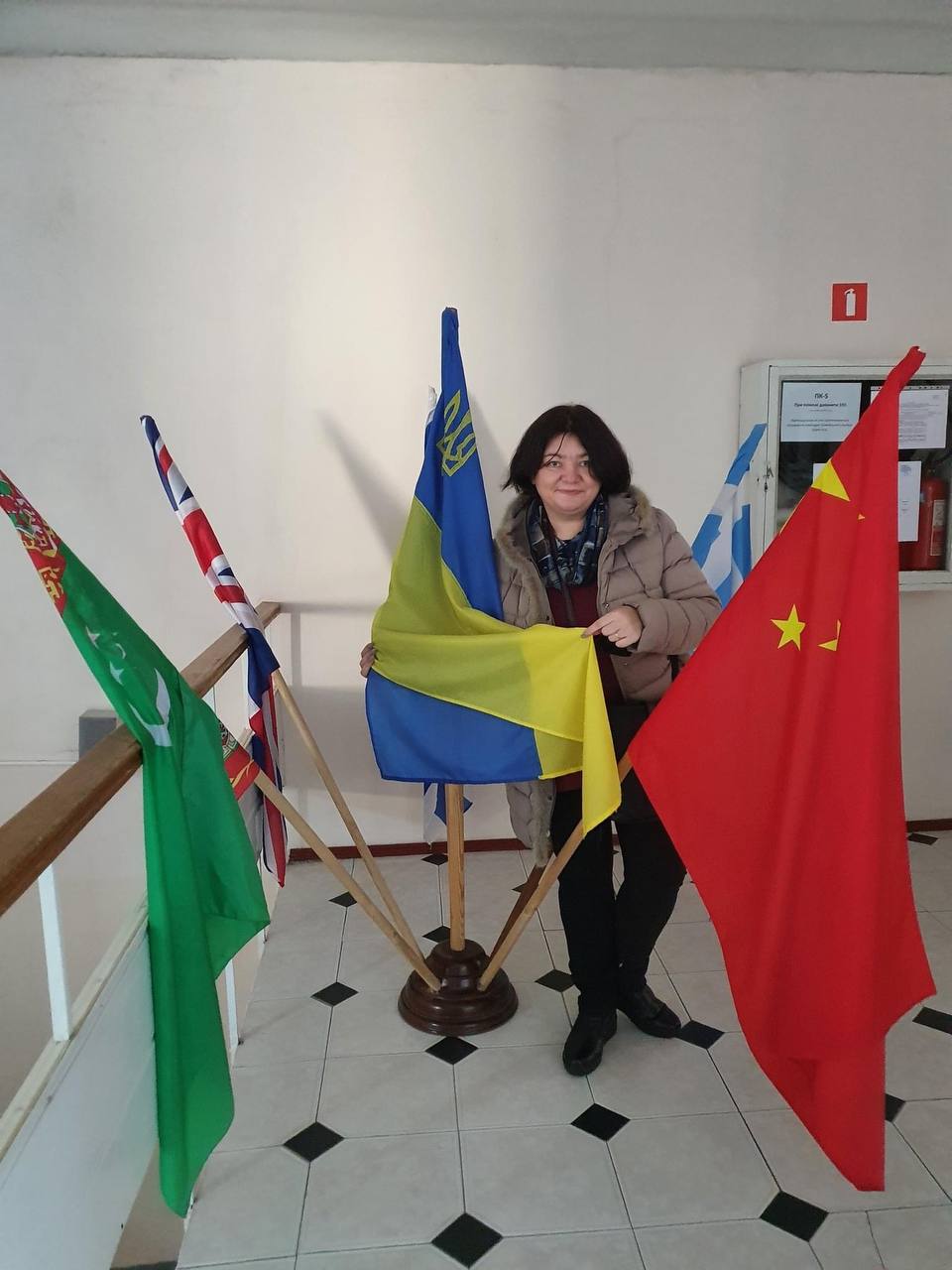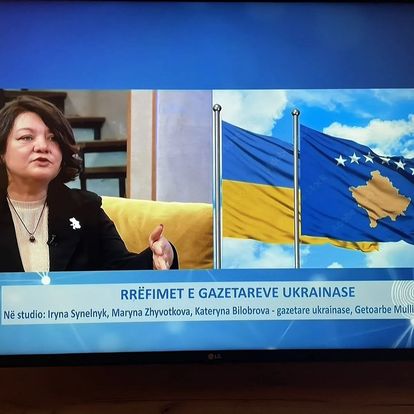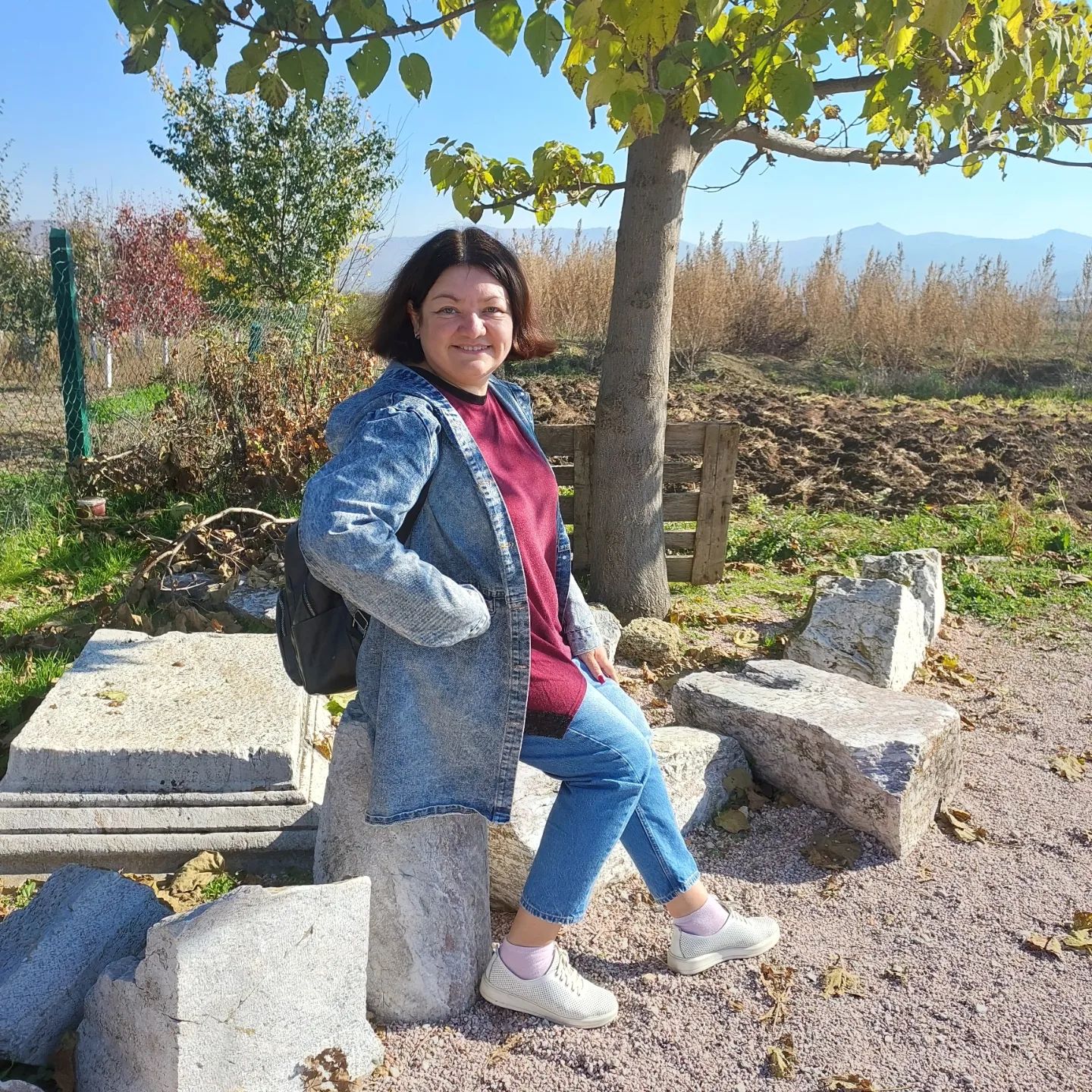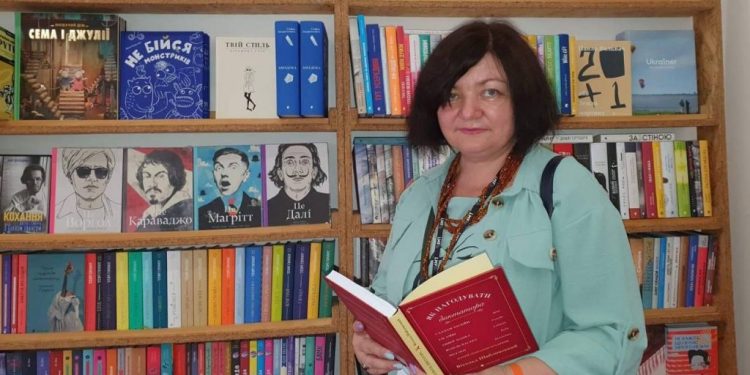Maryna Zhyvotkova, the editor of the “Troitske.City” website and the “Sil’ska Novyna” newspaper from the Luhansk region of Ukraine, along with her editorial team, remained in occupation for over two months and continued their work. However, Maryna was eventually taken for questioning. She shared her experience with NUJU correspondents, discussing the accusations, betrayal, collaborators, and her escape from the authorities.
Cut Off from Ukraine.
That February Thursday was supposed to be a typical workday for Maryna. However, she didn’t have time to get ready for work before her phone rang.
— They called me from the printing house in Kharkiv and said that this time the newspaper wouldn’t be printed because Kharkiv was being bombed — Maryna Zhyvotkova began her story.
The editor immediately started calling her colleagues, urging them to leave the city immediately. However, the swift advance of the situation on the ground in Luhansk made organizing transportation impossible.
— In the first days of the war, soldiers from the so-called Luhansk People’s Republic (LPR) led by Russians, entered the territory of Luhansk. When I called Sieviersodonetsk, I found out that we were already cut off and surrounded, — the journalist recounted. — On one side was the border with the Russian Federation, and on the other side were battles in Kharkiv.
The editorial team, stranded in occupied territory, chose to continue their work online, covering local events. Initially, when LPR militants seized Troitske, daily peaceful protests erupted. Locals rallied in the streets, waving Ukrainian flags and shouting slogans like “Luhansk is Ukraine!” and “Troitske is Ukraine!” However, the occupiers responded by brandishing their firearms.
— Of course, after such incidents, people stopped going to demonstrations because it became clear that it was pointless. However, the Russians did not break our people. At night, teenagers would go out and raise Ukrainian flags. The LPR militants would take those flags down, put up their own, and the next night, our flags would be back. It continued until they caught the first daring individuals. Afterward, the occupiers started going door-to-door, checking phones, identifying activists, and looking for specific individuals listed somewhere, such as those who had served in the Armed Forces and police, — Maryna said.
At that time, the editor did not yet know that she was also closely monitored by informants and collaborators of the occupiers. One day, they knocked on her door.
— They came to my home and took me in for questioning. Fortunately, my colleagues quickly reacted and contacted journalists from the ‘City’ network, which promptly closed the ‘Troitske’ website by changing all the passwords. This saved me because the occupiers couldn’t use our website or our social media pages, — Maryna explained.
During the eight-hour interrogation, they questioned her about everything, not just her work on the website but also her involvement in civil activities, which she actively pursued with the support of UNDP and other international organizations.
— For them, the fact that you cooperate with foreign organizations is already a crime. Even T-shirts with UN, and EU logos – that’s a reason to accuse you of collaborating with the enemy. They took newspapers from our office as evidence; someone among my colleagues gave them my keys, — she continued.
But the most frightening moment came when the so-called ‘investigators’ started talking about her son.
— My son also serves in the Armed Forces, and they found out about that. During the interrogation, they even told me that I was a bad mother for sending my son to his death. It was a psychological move, but I endured it. I didn’t care what they would do to me, as long as they didn’t do something that my son would find out and want to seek revenge, — the journalist confessed.
Maryna did not return to her office. All her belongings – furniture, equipment, video cameras, newspapers, and even her car – were sealed off.
— They told me that for the second interrogation, they would take me to Luhansk, and there I would have to explain everything about what they found in my home and office. Even diplomas for some courses, sponsored by the USA, UK, and Switzerland – all of it was treated as a crime, collaboration with foreigners. They told me, ‘You have nothing good to look forward to.’ Then they released me with the condition that I would quit journalism, — Maryna Zhivotkova concluded.

“We’re Going Shopping to Moscow”
Maryna had no intention of waiting for a second interrogation. Throughout the night, she sought volunteers willing to help her leave the city while under investigation. Traveling through Ukraine was impossible. The only remaining option was through Russia.
— In the morning, a volunteer offered me a seat on a bus heading through Russia to the Latvian border. I agreed, bringing only my documents. In the minivan, there were eight of us, including four farmers reuniting with their wives in Germany, a woman with a child, and a young model who had initially visited her grandmother in Sievierodonetsk but got stranded due to the war, — Maryna recalls.
Maryna considers herself lucky, as they traveled on May 9th, and the checkpoints weren’t too strict. They only checked the documents of the driver and questioned the men extensively.
— On the minivan, there was a sign saying we were heading to Moscow. They asked about the purpose of our trip. We told them we were going shopping. One woman claimed she was going for medical treatment. That’s how they let us through. However, they questioned the men for a long time, even comparing their fingerprints, — Maryna adds. — In the evening, we boarded a bus and reached the border. There, the FSS (Russian Federal Security Service) questioned us, but not everyone. They convinced one of the farmers to stay and work in Russia, saying they would provide everything he needed. He stood his ground, insisting on continuing his journey to Germany.
They also tried persuading the young model to stay in Moscow, but fortunately, nothing in their database revealed that Maryna was a journalist. Thus, her cover story of going to Latvia for work was accepted by the Russian border guards without further questioning.

“In Latvia, we felt safe.”
A group of refugees, including Maryna, crossed into Latvia on foot during the night, receiving a warm welcome from border guards who helped them find temporary lodging at the railway station. Despite the presence of many Ukrainian war refugees, the Latvians provided assistance. They boarded a 3 a.m. train to Riga from there.
— We were pleasantly surprised by the warm reception we received as Ukrainians. We didn’t purchase tickets; we just showed our passports. The train conductor directed us to volunteer centers where we could seek advice on housing and jobs. Upon entering Latvia after crossing Russia, we felt safe, free from the worry of being pursued, — recalls the journalist.
Maryna was the first in her editorial team to travel through Russia to reach Riga. Once there, she messaged her colleagues in Troitske, encouraging them to leave as well. However, they declined, preferring to endure potential shelling over the uncertainty of Russian filtration camps.
— It was very difficult to stay there because they could come for you at any moment. And it was equally challenging to leave because you never knew if you’d be released or taken to filtration camps, whether you’d make it through safely or come under fire, — says the editor.
However, nearly all the editorial team members found a way to leave Troitske. Only two elderly individuals, who were bedridden and cared for by relatives, stayed behind. Maryna eventually relocated to Kosovo, where she currently resides. She maintains her journalism work, managing a Telegram channel for fellow townspeople worldwide and running a YouTube channel. On her website, she shares stories of Troitske residents, recounting their escape from occupation and resettlement experiences. She also highlights the brave individuals from Luhansk defending their region and Ukraine against the Russian invasion.

Maryna has many plans for the future.
— We plan to restore the newspaper as soon as our land is liberated. We will seek funding and turn to the National Union of Journalists of Ukraine for support. I believe people will support us. In Kosovo, I write for Ukrainian media outlets. We actively participate in various events, appear on local television and radio, give interviews to online publications, and share stories about Ukraine. We share a strong connection because Kosovars also fought for their independence and successfully defended it. They say we will definitely prevail, — optimistically states Maryna Zhyvotkova, editor of the Troitske.City website and the “Silska Novyna” newspaper.
This series, titled Executed Free Speech, is created as part of a project Drawing Ukrainian And International Audience’s Attention To Serious Violations Of Human Rights And Crimes Against Journalists And Mass Media By The Russian Federation, which is performed by the National Union of Journalists of Ukraine, with support from the Swedish non-profit organization Civil Rights Defenders.
JOURNALISTS ARE IMPORTANT. Stories of Life and Work in Conditions of War is a cycle of materials prepared by the team of the NUJU with the support of the Swedish human rights organization Civil Rights Defenders.
#CRD

 THE NATIONAL UNION OF
JOURNALISTS OF UKRAINE
THE NATIONAL UNION OF
JOURNALISTS OF UKRAINE
















Discussion about this post